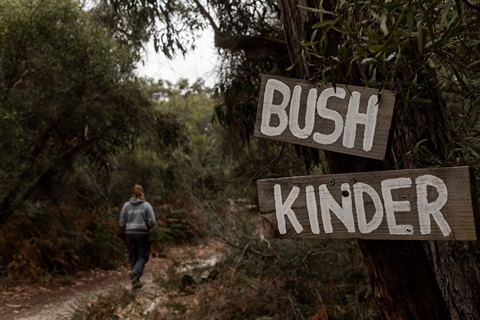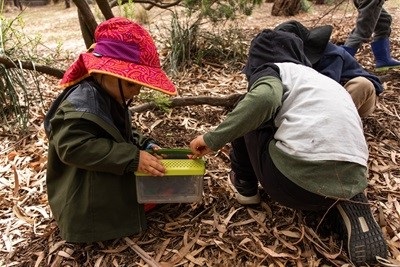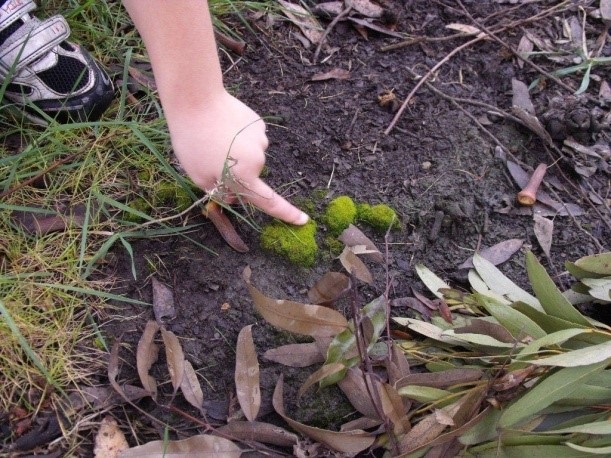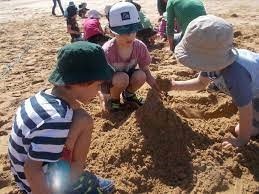Bush and beach kinder

What Is Bush/Beach Kinder?
Childhood is precious, and an important part of childhood is being outside in nature. We know that children need more time outside in nature and this knowledge is supported by research.
Children are natural learners. Bush/Beach Kinder provides each child with the time and an ideal environment to learn in: 3 hours of uninterrupted play in the bush, using what nature has provided as learning materials.
Bush/Beach Kinder will be a special part of each child’s total pre-school experience. They will have the opportunity to play in the rain, roll down grassy mounds, balance along fallen logs, explore the beach and rock pools, get involved in dramatic play, find insects, draw with sticks in the ground, climb trees….
Each child’s developmental progression, advancing skill levels and particular interests will be noted by their teachers. The teachers will use this knowledge to support the children’s learning (just as they do at kinder). Teachers will support children as they take the risks and face challenges essential to well-rounded learning. Stories will be told, knowledge will be shared, songs will be sung.
At times a specialist may assist the children’s learning. This could be done through the access of Rangers, GORCAPA, Angair, First Nation educators and Researchers… who know and understand the natural environment. Educators may also engage the expertise of a musician or a crafts person if this will support the children's learning.
Through play the children will connect with and respect their Bush Kinder space. They will connect with their land in a way that cannot be done under a roof or within walls.



Why We Have a Bush/Beach Kinder Program
Research has shown the benefits of outdoor play in nature are:
- Children who play regularly in natural settings are sick less often. Mud, sand, water, leaves, sticks, pinecones, and gum nuts can help to stimulate children's immune system, as well as their imagination.
- Children who spend more time outside tend to be more physically active and less likely to be overweight.
- Children who play in natural settings are more resistant to stress; have lower incidence of behavioural disorders, anxiety, and depression; and have a higher measure of self-worth.
- Children who play in natural settings play in more diverse, imaginative, and creative ways and show improved language and collaboration skills.
- Children who play in nature have more positive feelings about each other.
- Bullying behaviour is greatly reduced where children have access to diverse nature-based play environments.
- Symptoms of Attention Deficit Disorder are reduced after contact with nature.
- Childhood participation in “wild” nature such as hiking, playing in the bush, or camping, has a positive relationship to adult environmental attitudes.
- Encouraging children to become engaged with the natural world, preserving habitats where they can do so, and creating programs and opportunities for this to occur may be critical to the future of healthy children, healthy adults, and a healthy planet.






